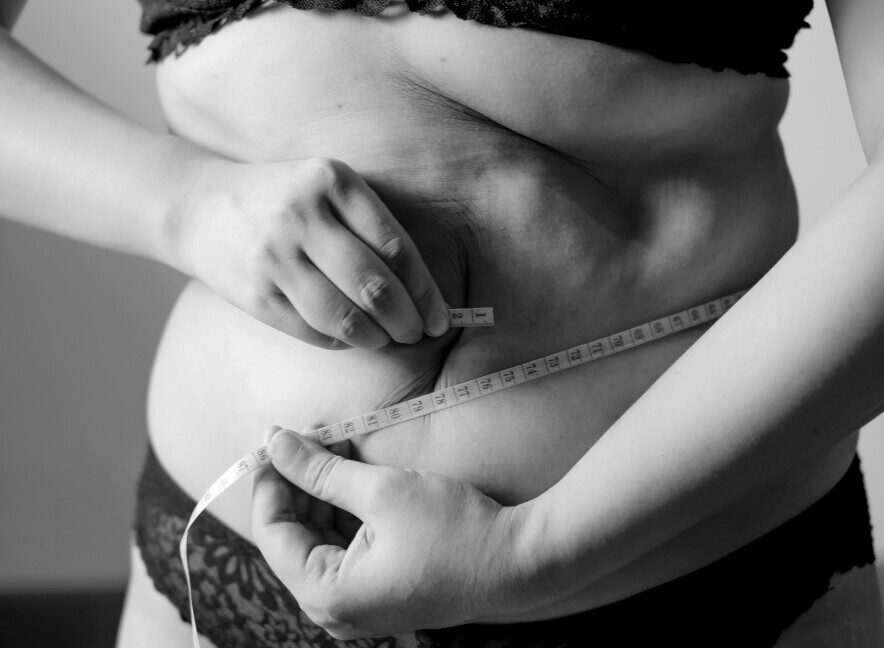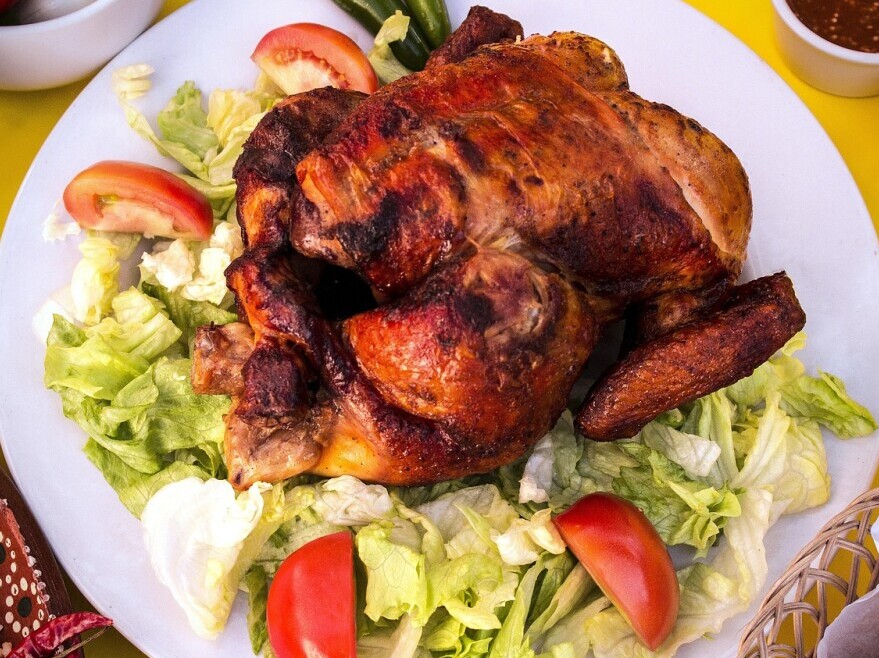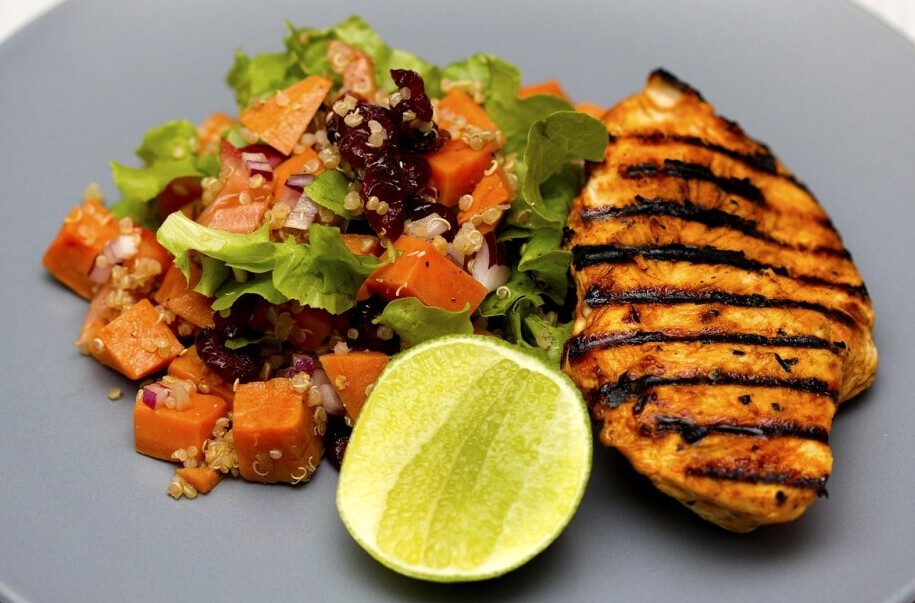Intermittent fasting can sound like one of those trendy diet terms, but it’s truly a game-changer when navigating weight loss. It’s all about cycling between periods of eating and not eating—sounds simple, right? But there are layers to it, with different methods like 16/8 (which means you eat during an 8-hour window and fast for 16-this is my preferred method of late), 5:2 (eat normally five days and restrict calories for two) and the Eat-Stop-Eat approach (a full 24-hour fast once or twice a week). Each has its unique vibe, fitting into various lifestyles and preferences.
Now, would you like to hear about my personal journey into intermittent fasting? Well, it was kind of a failure/accidental adventure. First time I tried this, I was so excited about the freedom to eat during those windows that I overdid it—ended up gaining 10 pounds in just two weeks! Whoa! Hold on now just-a-cotton-pickin’-minute! I wanted that big belly of mine to go away, not get bigger! That was a real wake-up call. I temporarily ditched the plan out of frustration, figured maybe I’d give it another try in a few months. I was in no hurry to possibly fail even again and gain yet another 10 pounds so I decided to wait. Actually I felt like Adam Sandler-I’m not sure if it’s true or not (he could’ve been kidding) but I heard him say on tv around the same time that he had done the exact same thing! Right down to gaining about the same amount of weight! But here’s where the plot twisted: a couple of weeks later, without even trying or noticing what I was doing, I found myself unintentionally slipping back into an intermittent fasting rhythm, and guess what? The weight started to come off. I learned right there that sometimes, trying too hard is the enemy of progress.
This whole experience taught me that the success of intermittent fasting isn’t locked in some strict schedule or magical formula. It’s more about your mindset and being comfortable with a little flexibility. Trying to nail perfection only sets up a cycle of stress and failure. Instead, easing into it means letting your body naturally get used to the pattern without forcing things. Trust me, it makes the whole process way more organic and sustainable. So just take it easy, and relax.
Mistake #1: Overeating During Eating Windows
When starting intermittent fasting, it’s easy to think, “Great, all this time for eating? Let’s feast!” I walked right into that trap! The lure of the eating window can make portion control vanish quickly, leading to overeating. It’s like the brain tricks you into thinking you need to make up for the fasting time with every calorie you can find.

I firsthand felt the consequences of this mistake, managing to rack up 10 extra pounds in a snap. It wasn’t until I paused to reassess that I realized my eating windows should be about balanced, nutritious meals, not just unrestricted eating marathons. High-quality foods matter more than quantity, which directly impacts the results you see on the scale.
So, what’s the antidote to avoid this pitfall? Start meal planning. Planning your meals helps dodge the temptation to overeat and keeps you on track with nutritious food options. Think of it like creating a blueprint that guides you safely through your eating window—a guide showing you exactly what to eat and when.
Portion control is your best friend here. Begin each meal with proteins and veggies, filling you up faster and fueling you with nutrients your body craves after fasting. Keep an eye on those carbs and fats; they can secretly sneak in extra calories without you noticing, especially when you’re back in eating mode.
Incorporating mindfulness into your eating habits can also be a game changer. Slow down, savor each bite, recognize your hunger cues, and stop once your body signals you’re full. This mindful approach won’t just keep your calories in check, it’ll make the whole experience much more satisfying.
Mistake #2: Focusing Too Much on Perfection
Jumping into intermittent fasting can feel like diving into a rulebook, especially if you get tangled up in “getting it right.” I’ve been there, tangled in my quest for perfection. It’s tempting to think that following every detail to the letter will fast-track results, but aiming for flawless execution can actually set up the frustration of unmet expectations.
The stress of strict scheduling can lead to feeling overwhelmed. More than once, I found myself overthinking every meal and second-guessing if I was “doing it right,” which is exhausting! This rigidity can take the joy out of the process, turning what should be a natural transition into a stress-inducing task.
Relax! Let things flow naturally. Adaptability is your ally. Instead of forcing your body into a regimented plan it’s not comfortable with, grant yourself the flexibility to ease into it. This relaxed approach reduces stress and lets your body adapt seamlessly to this new eating style.
Success with intermittent fasting is less about precision and more about finding what works for you personally. Timelines are adjustable; it’s neither a sprint nor a magically one-size-fits-all solution. Take a note from my journey—relax into it, and you’ll find it becomes much easier to manage.
Focus on progress, not perfection. Every attempt provides valuable lessons, and over time, these small changes lead to big results. With patience and a willingness to adjust, intermittent fasting can fit like a glove, letting you feel comfortable and confident in the process.
Mistake #3: Neglecting Nutritional Balance
Intermittent fasting might sound like a free pass to eat whatever fits in your eating window, but in reality, balance is critical. The appeal of unrestricted eating can often lead to ignoring the quality and nutritional value of the food you consume. I had my own run-ins with this mistake, assuming my eating periods meant I could indulge without consequence.
H However, to truly make the most of intermittent fasting, focusing on nutritional balance is essential. It’s not just about hitting the reset button on food intake; it’s about giving your body the fuel it really needs: proteins, fiber, and good fats are key players here. Crafting a meal plan that centers around nutrient-dense foods will help keep you satisfied longer and support your health goals.
However, to truly make the most of intermittent fasting, focusing on nutritional balance is essential. It’s not just about hitting the reset button on food intake; it’s about giving your body the fuel it really needs: proteins, fiber, and good fats are key players here. Crafting a meal plan that centers around nutrient-dense foods will help keep you satisfied longer and support your health goals.
A common pitfall is thinking calories are all that matter. Sure, they play a role, but the type of calories you’re consuming makes all the difference. Carbs and sugars can creep in stealthily, leaving you with energy dips and the potential to quickly eat more than your body actually needs.
What does a balanced eating window look like? Start with plenty of veggies, lean proteins like chicken or fish, and wholesome grains. These choices will fill you up with vital nutrients and keep those sugar spikes at bay. And don’t forget fiber! It helps you feel full and supports digestion.
Ultimately, when I learned to prioritize balance over excess, intermittent fasting became far more effective and enjoyable. Instead of the rollercoaster of overeating and feeling sluggish, my energy levels became more consistent and my goals more reachable. A little planning goes a long way in aligning your diet with your fasting goals.
Mistake #4: Ignoring Body Signals and Feedback
The body has a remarkable way of communicating what it needs. With intermittent fasting, listening to these cues becomes more important than ever. It’s easy to ignore those inner signals when first diving into fasting, believing that sticking rigidly to the schedule is the best path.
However, one key to success is tuning into what your body tells you. Hunger and fullness are signals worth noting, and learning to read them can prevent you from overdoing or skimping on needed calories. Early on, I learned the hard way by ignoring these signals, often ending up cranky, fatigued, or even over-snacking when the eating window opened. Not good for a diabetic because you can end up just grabbing-well, pretty much anything at the time. Big mistake and you’ll pay for that.
It’s essential to develop a kind of dialogue with your body, acknowledging when hunger is genuine and when it might just be boredom or habit at play. Deprivation is not the goal; it’s about fostering a healthy relationship with food and timing.
Hydration plays a crucial role here, too. Many mix up hunger with thirst, so keep that water bottle handy. Staying hydrated supports overall health and can ward off unnecessary hunger pangs. It’s the diamond in your journey.
Approaching your fasting journey with flexibility and attention to personal needs ensures it doesn’t become a fight against your body. Instead, it’s a collaboration where your body feels supported and in balance with the new eating pattern.

I absolutely loved how honest and relatable this post was! Your journey with intermittent fasting really hit home especially the part about trying too hard and gaining weight in the process (been there!). The reminder to prioritize mindset over perfection is such a game-changer. I’m now rethinking how I approach my own fasting routine with more ease. Have you found any specific types of meals that help you feel full longer during your eating window?
Hello, Kavitha. I find I do the best eating like air-fried meat (chicken, hamburg, sausage, salmon cakes, ect) usually with some cheese (extra sharp’s my fav) with ketchup, mustard or both. Pure protein does me the best though I do have a weakness for pasta that I give into now and then. When I do give in I try to make sure I include a lot of meat like salmon and noodles, goulash with hamburg, or even potatoes with chicken or fish. And my protein shakes which I adore, (tastes so much like a milk shake I feel like I’m cheating which keeps me on target since it’s such a sinful pleasure to be ‘bad’ while being good.) Gaining weight during my first try at IF was a shocker to say the least and getting out of one mindset and into the right one was way easier to do but much harder to keep at. I kept slipping back to old habits but with practice it becomes almost second nature, it’s just getting to that point. And no one can be 100% perfect 100% of the time. It’s too destructive to even try. (Breen there and tried, more than once and I’ve failed all without ever hardly losing more than 9 pounds after months of severely strict eating and all kinds of diet methods. I’ve lost more since I’ve relaxed and begun to ‘enjoy’ the journey rather than fighting against it. It’s made IF seem so natural now. Thank you for your comments and all my best to you. FireLava